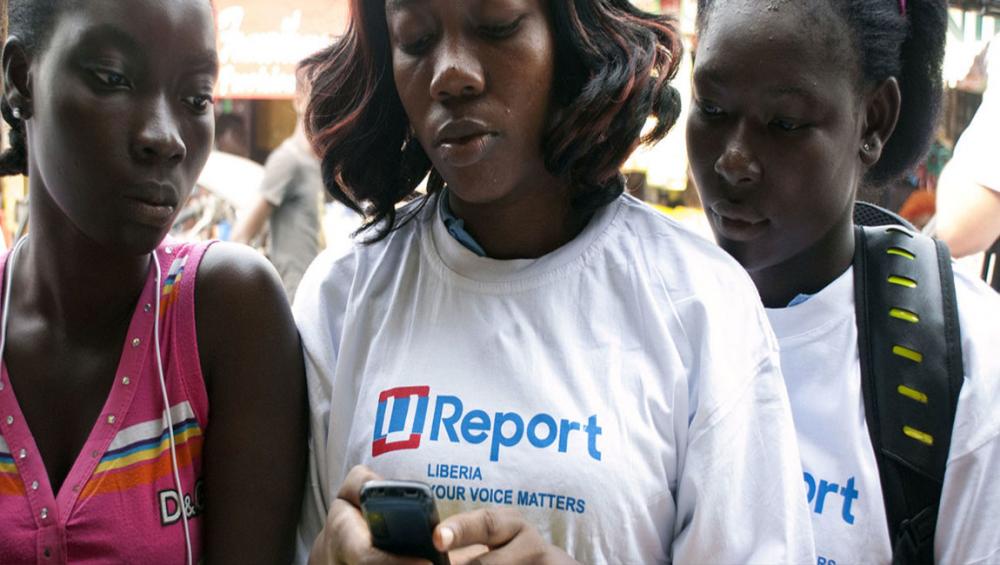Just Earth News | @justearthnews | 04 Sep 2019, 09:11 pm Print

UNICEF/Naftalin
New York,Sept 4 (JEN): Around one-in-three young people across 30 countries say they have been bullied online, while one-in-five report that they have skipped school because of it. Those are some of the key findings in a new poll released on Wednesday by the UN Children’s Fund (UNICEF) and the UN Special Representative on Violence against Children.
Speaking out anonymously through the youth engagement tool U-Report, almost three-quarters of young people also said social networks, including Facebook, Instagram, Snapchat and Twitter, are the most common place for online bullying.
“Connected classrooms mean school no longer ends once a student leaves class, and, unfortunately, neither does schoolyard bullying”, said UNICEF Executive Director Henrietta Fore. “Improving young people’s education experience means accounting for the environment they encounter online as well as offline.”
Via SMS and instant messaging, young people were asked a series of questions about their experiences of online bullying and violence, including who they thought should be trying to end it.
Some 32 per cent of those polled believed governments should end cyberbullying, 31 per cent put the onus on young people themselves to stop the harassment and 29 per cent cited internet companies as bearing the chief responsibility.
“One of the key messages that we can clearly see from their opinions is the need for children and young people involvement and partnering” said Najat Maalla Mjid, UN Special Representative of the Secretary-General on Violence against Children. “We are in this together and we must share the responsibility in partnership.”
The poll results also challenge the notion that cyberbullying among classmates is something unique to wealthier schools.
To help end online bullying and violence, UNICEF is calling for authorities to:
Implement bullying and cyberbullying policies.
Establishment national helplines for children and young people.
Advance ethical standards and practices among social network providers.
Collection of better, disaggregated evidence about children and young people’s online behaviour to inform policy and guidance.
Teacher and parent training to address cyberbullying and bullying, particularly for vulnerable groups.
For example, 34 per cent of respondents in sub-Saharan Africa said they had been a victim of online bullying. And some 39 per cent said they knew about private online groups inside the school community, where children share information about peers for the purpose of bullying.
As part of UNICEF’s campaign to #ENDviolence in and around schools, children and young people from around the world drafted a Youth Manifesto in 2018, calling on Governments, teachers, parents and each other to help end violence and ensure students feel safe in and around school – including calling for protection online.
“All over the world, young people in both high and low-income countries are telling us that they are being bullied online, that it is affecting their education, and that they want it to stop,” said Ms. Fore. “As we mark the 30th anniversary of the Convention on the Rights of the Child, we must ensure children’s rights are at the forefront of digital safety and protection policies.”
More than 170,000 13 to 24 year-olds participated in the poll through the youth engagement tool U-Report, including young people from Albania, Bangladesh, Belize, Bolivia, Brazil, Burkina Faso, Côte d’Ivoire, Ecuador, France, Gambia, Ghana, India, Indonesia, Iraq, Jamaica, Kosovo, Liberia, Malawi, Malaysia, Mali, Moldova, Montenegro, Myanmar, Nigeria, Romania, Sierra Leone, Trinidad & Tobago, Ukraine, Vietnam and Zimbabwe.
Photo caption and Credit:
Adolescent girls in Liberia read information a mobile phone in the West Point neighbourhood of Monrovia, the capital.
- Antony Blinken discusses assassination attempt on Prime Minister with Iraqi President Barham Salih
- Civilians ‘must not be a target’, urges UNHCR, following military escalation in northern Syria
- Christian protest forces Israeli Museum to remove controversial Ronald McDonald statue
- Restoring government control across Central African Republic is ‘key’ to lasting peace, stability – UN envoy
- Peacekeeping chief highlights challenges facing UN Police





-1763561110.jpg)
